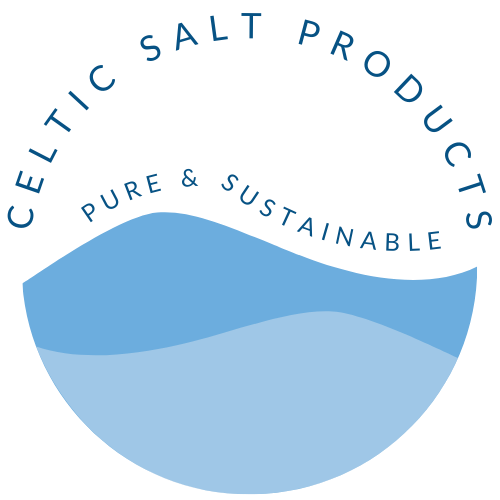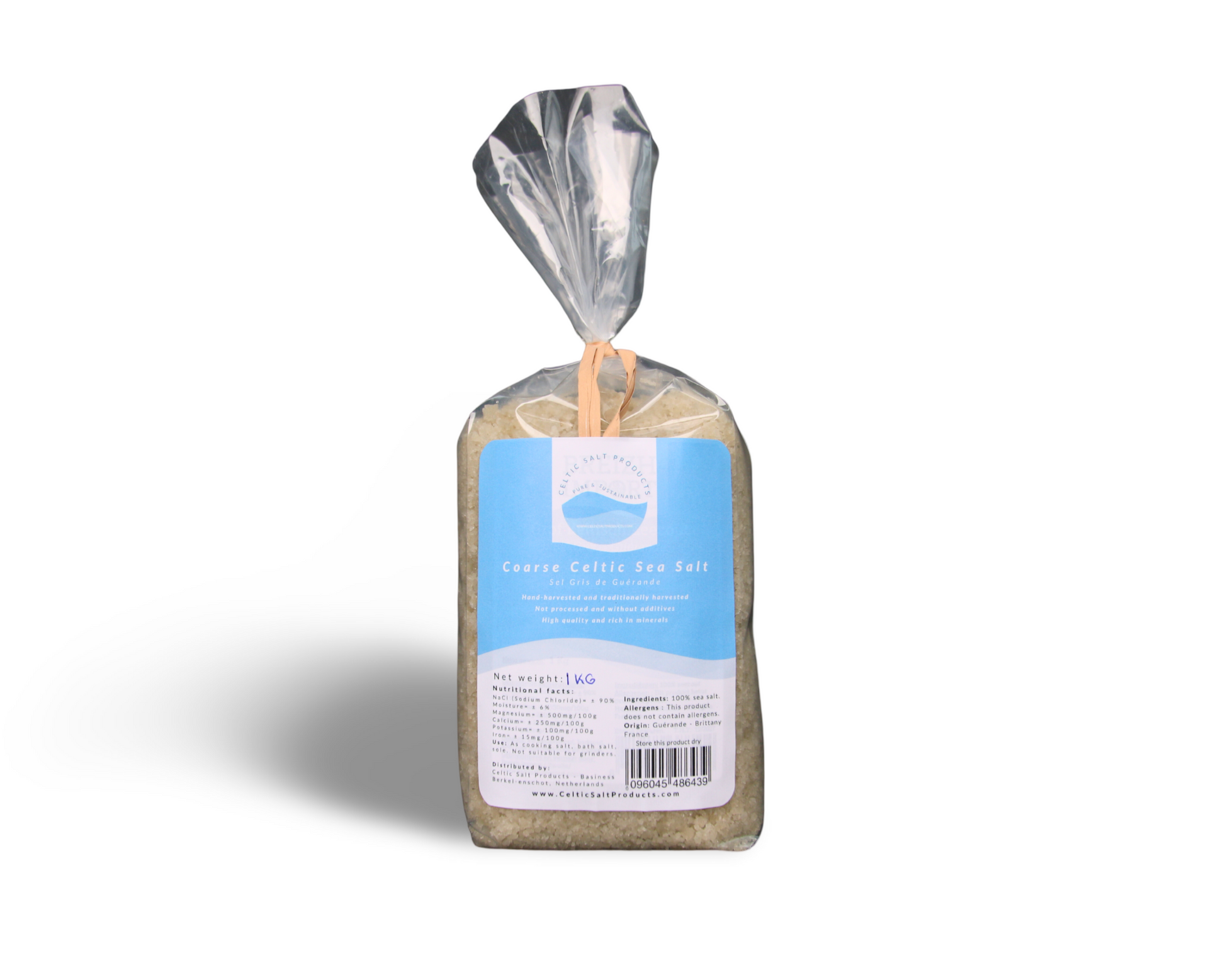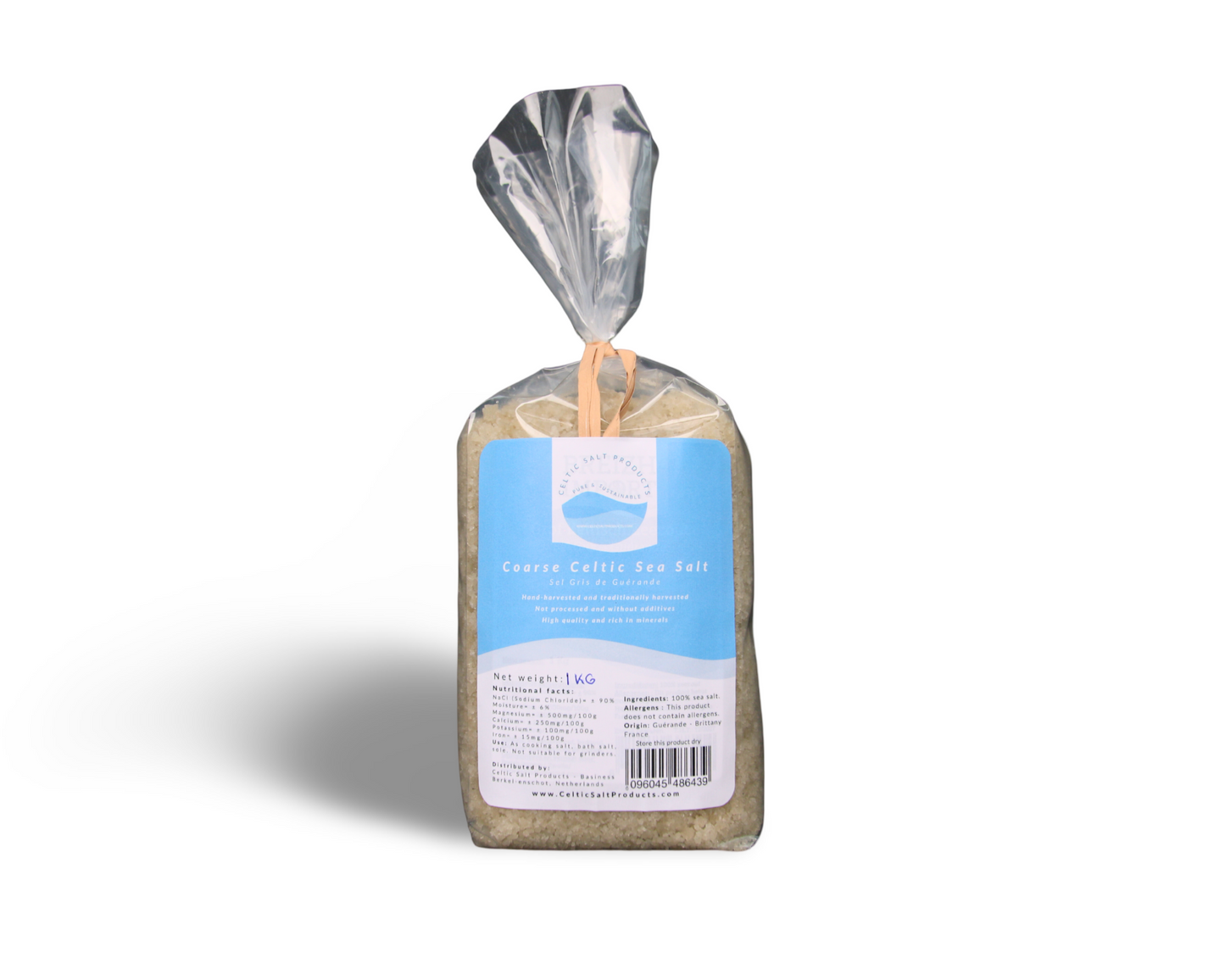Salt is not just a culinary ingredient; it's a bridge between cultures and a testament to ancient methods that have stood the test of time. Among the various types of salt, Celtic sea salt holds a special place. Harvested traditionally in the Brittany region of France, this salt is renowned for its unique gray hue, moist texture, and rich mineral content. Let's delve into the world of Celtic sea salt and discover why it's more than just a seasoning.
Origins and Harvesting
Celtic sea salt, also known as "Sel Gris" (Gray Salt), is harvested using traditional methods that date back to the Iron Age. Salt farmers, or "paludiers," use wooden rakes to collect the salt from the shallow marshes of the Brittany coast. This labor-intensive process ensures that the salt retains its natural balance of minerals and trace elements.
Nutritional Profile
One of the most lauded aspects of Celtic sea salt is its rich mineral content. Unlike regular table salt, which is heavily processed and stripped of most of its natural minerals, Celtic sea salt contains a variety of minerals, including magnesium, calcium, potassium, and numerous trace elements. These minerals are essential for various bodily functions, including maintaining electrolyte balance and hydration.
Culinary Uses
The coarse texture and briny flavor of Celtic sea salt make it a favorite among chefs and home cooks alike. It's excellent for seasoning meats, roasting vegetables, and enhancing the flavors of soups and stews. The slightly moist nature of the salt also makes it ideal for finishing dishes, as it adds a delicate crunch and a burst of flavor.
Health Benefits
In addition to its culinary uses, Celtic sea salt offers various health benefits. Its balanced mineral content can help in maintaining the body's pH levels, supporting the immune system, and aiding digestion. Furthermore, the trace minerals in Celtic sea salt can help in replenishing electrolytes lost during exercise or sweating, making it a natural alternative to commercial sports drinks.
Environmental Impact
Another reason to choose Celtic sea salt is its minimal environmental impact. The traditional harvesting methods are sustainable and have a low carbon footprint. The salt marshes of Brittany also serve as important ecosystems, providing habitats for various wildlife species.
Incorporating Celtic Sea Salt into Your Diet
To fully enjoy the benefits of Celtic sea salt, use it as a replacement for regular table salt in your cooking. Its unique flavor and texture can elevate even the simplest dishes. Remember, like all salts, moderation is key to a healthy diet.
A Time-Honored Tradition
Celtic sea salt is more than just a seasoning; it's a connection to an age-old tradition, a healthier alternative to processed salts, and a testament to sustainable harvesting. Whether you're a gourmet chef or a health-conscious consumer, incorporating Celtic sea salt into your diet is a choice that benefits both your palate and your well-being.


